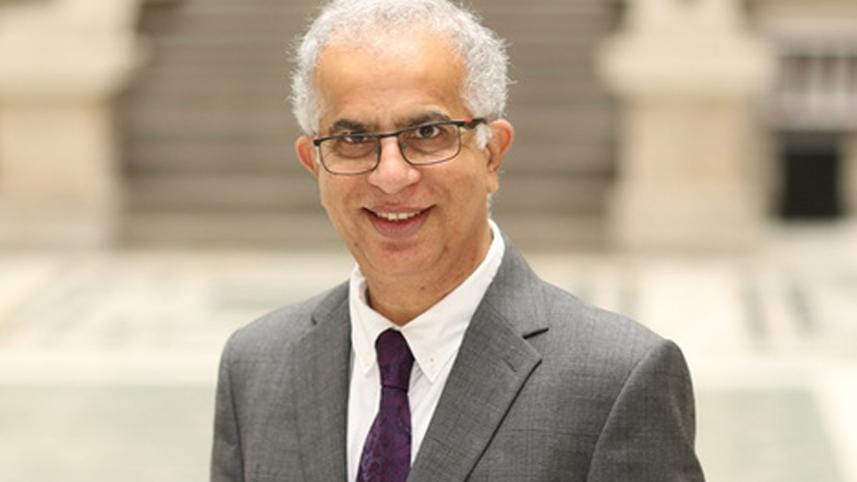Growth relies on better public service, productivity

Bangladesh needs to provide quality public goods and services, raise productivity and adapt to technological advancement-induced challenges to maintain its growth towards its aim to become an upper-middle-income country, said an economist working for the British government yesterday.
Soon to make the status graduation from a least-developed country (LDC), Bangladesh will face a new set of challenges, said Professor Adnan Khan, chief economist and director for Economics and Evaluation Directorate at the Foreign, Commonwealth & Development Office.
"So, it will have to provide high-quality goods and develop deeper sustained capacity for doing so, enable private entrepreneurs to unlock growth through raising productivity, and innovate and adapt to future challenges of the transformation of technology."
Khan was delivering a public lecture titled "State Effectiveness and the Challenge of Development" organised by the Policy Research Institute of Bangladesh (PRI) at the Amari Dhaka hotel.
Bangladesh's success in the economic and social indicators was miraculous, driven by a large domestic market, a demographic dividend, remittance flows, garment exports and relatively stable macroeconomic conditions, he said.
"Bangladesh is an unsung development story…an example for developing countries."
However, the economy has been facing some challenges over the last decade, said Khan.
This remarkable progress has slowed partly for global conditions and partly for domestic reasons, he said, citing data of slow gross domestic product (GDP) growth rate, decline in job growth and shrinking contribution of exports to the GDP.
Inflation has also remained persistently high since the middle of 2022.
As Bangladesh is going to be an upper-middle income country, it will need high levels of revenues to deliver high-quality public services, he said.
"The tax system should be broad-based and equitable for all."
The tax to GDP ratio in Bangladesh was 7.6 percent in 2021 which was below the average of 10.7 percent for middle-income countries.
In order to improve tax mobilisation, Khan suggested ensuring quality public services so that people become encouraged to pay taxes.
"The key to improving taxation lies in the effectiveness of the state in providing public services."
The economist also went on to say that the government needed to increase the use of technology and information, ensure enforcement of laws and incentivise tax inspectors.
"Low revenue mobilisation is not due to low tax rates, but rather due to fewer instances of law enforcement. So, enforcement is crucial."
To raise tax collection, Khan recommended improving the trust people have on the government.
"Where there are more checks and balances, there is higher trust. And when trust is higher, voluntary compliance to pay tax is higher."
Khan also touched upon climate change increasing the risks towards growth and resilience, recommending focusing on investments in adaptation in the delta regions.
"Greater export diversification and more foreign direct investment will help the economy reach the goal of upper-middle income status."
Khan also suggested improving the quality of education so that it could help make the economy more productive and narrow the gap in human capital with other countries in the region.
"Skills of tax officials need to be improved so that their understanding on financial statements is up to the mark," said Mashiur Rahman, the prime minister's economic affairs adviser.
Sometimes, tax officials create problems for entrepreneurs by being unable to properly understand financial reports, he said.
"The tax rate should be such that taxpayers are incentivised to invest and create more jobs."
He said many companies do not properly maintain financial records, which creates a big problem in tax collection.
On improving education, Rahman said primary and secondary education should be attuned to enabling the country to switch to advanced technology.
Zaidi Sattar, chairman of the PRI, chaired the session.



 For all latest news, follow The Daily Star's Google News channel.
For all latest news, follow The Daily Star's Google News channel.
Comments